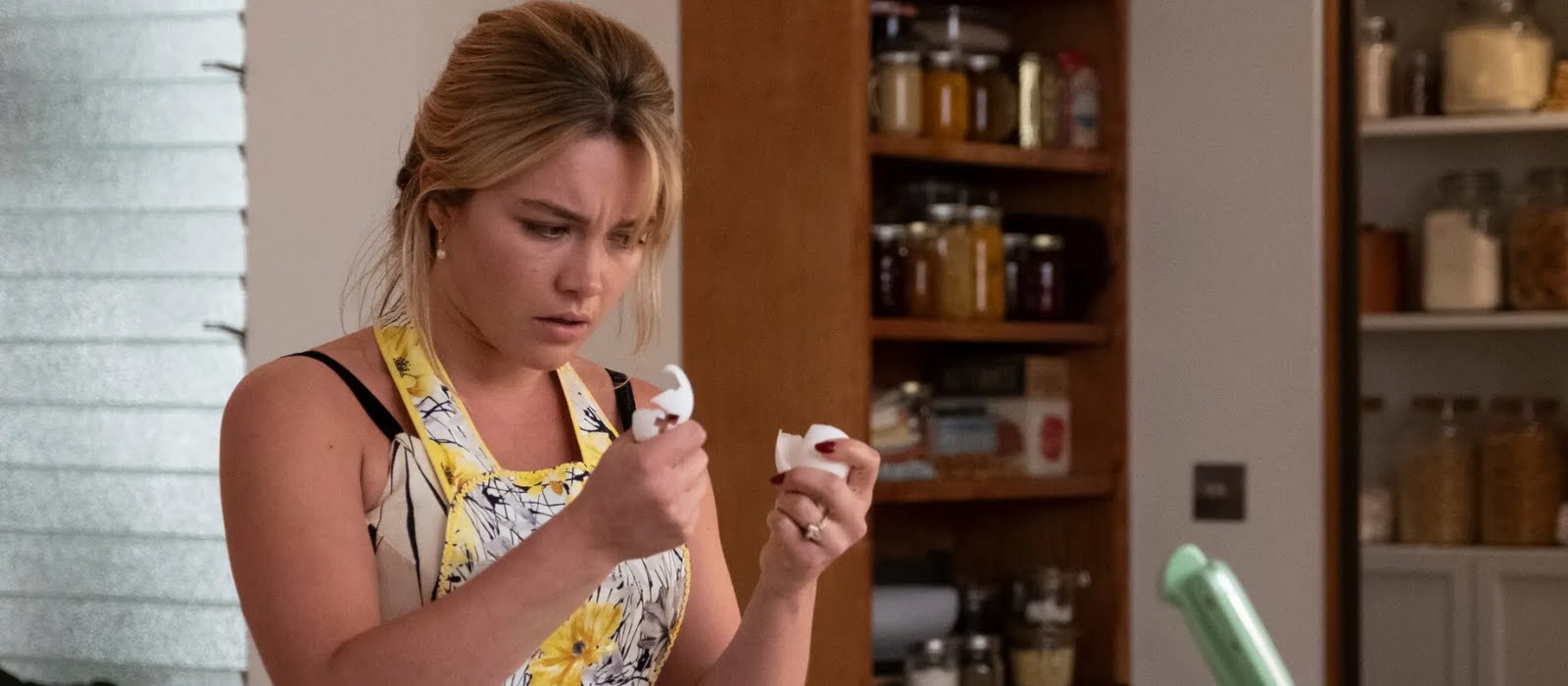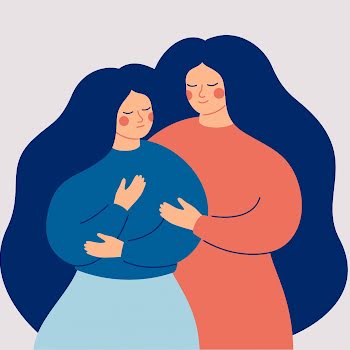Warner Bros
Hetero-exceptionalism is the new form of blaming women for systemic inequality
The research is in: heteronormative marriage systemically disadvantages women and perpetuates inequality and women’s unhappiness. So why are we still pretending that a happy marriage is simply a question of individual skill and willpower?
I’ve been doing a lot of reading about the state of marriage these days, and I need to tell you: it’s not looking great. If I were a doctor diagnosing a medical issue, I’d say that sadly, the prognosis is not good, and this condition seems to be incurable.
It’s not news that heteronormative marriage benefits men more than it does women. Historically, marriage was about the exchange of women as property, and draconian laws controlling what married women could or could not do are painfully recent. Until 1944, women could not collect child benefits, only the child’s father could, meaning she had little control or access to the finances required to care for a family. Until 1976, women with abusive husbands could not seek out a barring order even if they or their children’s safety were at risk. Until 1973, women in the public service and some private service jobs had to resign from the workplace when they got married, preventing them from making their own income. Until 1990, marital rape was not a crime, and it wasn’t until 2002 that the first marital rape case was successfully prosecuted, showing how deeply held cultural beliefs around a man’s entitlement to his wife’s body were.
While many of the laws controlling married women have been changed, societal and cultural ideas about marriage and womanhood are slower to shift, and limits placed on married women and mothers’ independence, professional advancement and financial success are more insidious but ever-present. The Motherhood Penalty is a form of discrimination that working mothers experience in the workplace, where they are not only perceived as less competent and less committed to their jobs but can also expect a 5-20% pay wage penalty – contrasting with a 6% wage increase for working fathers. The lack of cultural and workplace norms around paternal care means that mothers are assumed to be the default parent, and can suffer career stagnation or difficulty getting back into the workforce, which can impact their financial freedom as well as their sense of selfhood.
And in the home, even supposedly progressive husbands aren’t picking up the slack. Endless research shows that women still do the lion’s share of domestic labour in the home; they’re still the primary and default caregivers for not only children but sick and elderly relatives; and women living with men are still burdened with the mental load of running a home. This is the type of invisible labour that women in heteronormative marriages have long been shouldering without acknowledgement or compensation; an insidious form of inequality that seeps into the home. There is thankfully more awareness around these daily evidences of sexism, though this awareness has not translated into a change to the status quo, yet, with most married women still doing far more work than their husbands in the home. But instead of revolting in the streets or taking a cue from feminists of the 1970s like Silvia Federici who started the ‘Wages Against Housework’ movement, women in 2024 are making jokes. Really depressing jokes.
Heteropessismism and maintaining the status quo
There’s a trend on Instagram of women poking fun at how useless their husbands are; a sort of personalised version of the Useless Husband trope that advertisements and sitcoms of the 80s and 90s used to make, where a slobbish husband can’t manage to open the fridge without falling over while his slim, multi-tasking, ever-beatifically-smiling blonde wife effectively mops spills, catches a toddler slipping from their high chair, answers the phone and bastes a turkey all in one fluid movement. “Look at how helpless these poor boys are,” this trope implies. “If you want something done, women better do it themselves, are we right?” Except these men aren’t helpless; they’re pretending to be. It’s called weaponised incompetence, which is a noted and deeply gendered psychological dynamic where one person avoids, refuses or deliberately sabotages certain tasks, saying ‘I don’t know how’ or ‘You do it so much better’ as an excuse. It’s men refusing to learn how to cook, properly clean a bathroom, or attend to a child’s needs, then pretending that these skills are somehow innate to women and not things that can be learned, practiced and improved upon as a way of abdicating responsibility for them.
Women online making jokes about their husbands’ weaponised incompetence is a complicated issue. Sure, it’s a way of acknowledging the unequal dynamic in the relationship – but it’s not addressing it. It’s a smiling eye-roll, a passive-aggressive teasing, but ultimately, it’s also an acceptance of the dynamic – and adherence to the status quo. ‘Oh honey’, these jokes say. ‘What a slob you are, leaving your wet towels on the bathroom floor again. I’ll pick them up, as usual – the things we do for love, eh ladies?” And these jokes are indeed for the ladies. This type of content isn’t aimed at men to try to highlight the issue and get men to address sexism in their homes. No, this content is aimed at other women. It’s a form of female bonding – not in action, just in exasperated sighs.
These types of women-focused performances are an example of “heteropessimism”, a term coined by Asa Seresin in a 2019 essay for The New Inquiry. As explained by Seresin, heteropessimism consists of “performative disaffiliations with heterosexuality, usually expressed in the form of regret, embarrassment, or hopelessness about straight experience. Heteropessimism generally has a heavy focus on men as the root of the problem. That these disaffiliations are ‘performative’ does not mean that they are insincere but rather that they are rarely accompanied by the actual abandonment of heterosexuality.” In other words, heteropessimism is a form of visibly complaining about or acting embarrassed by the inequalities rife in heteronormative marriage – but not actually doing anything to dismantle these inequalities, leave the marriage, or abandon heterosexuality itself. It’s a performance, not an action – a complaining wife continuing to do all the housework and childcare, rolling her eyes knowingly at her female friends who all roll their eyes back, all keeping the cycle going, spinning their wheels, going nowhere.
The new divorce memoirs
Although, maybe this changing. Some women are certainly getting out, judging by the recent run of divorce memoirs by women. Leslie Jamison’s Splinters, Lyz Lenz’s This American Ex-Wife, poet Maggie Smith’s You Could Make This Place Beautiful, and Sarah Manguso’s Liars (which is officially being called fiction though it’s clearly a barely concealed portrait of her and her ex-husband) all address how the writers – all smart, successful, accomplished feminists and writers – endured years of marriage to men who claimed to want a brilliant, successful, feminist wife, but still did less than their fair share of domestic and care work; resented and even sabotaged their wives’ professional success; and in some cases, had affairs while their wives were at home taking care of their homes and children. Confronted with the relentless inequality in their relationships, the constant demands that these women shrink their ambition, their success, their desires, and their voice for men who couldn’t show up as an equal partner; each of these writers realised that the cultural image of heteronormative marriage, the underlying message of all the eye-rolling heteropessimistic jokes, the message that women have been taught since birth, that marriage and a family – even one riddled with gender inequality – is the epitome of happiness, success and wholeness that a woman should aspire to, was a lie. “Whatever brokenness waited for me”, Lyz Lenz wrote about deciding to end her marriage “I suddenly wanted. Because this wholeness, this version of home, marriage and family, would ruin me.”
Lenz’ book is not just an account of the end of her marriage – it’s a meticulously researched examination of how heteronormative marriage doesn’t just accidentally disadvantage women – it’s designed to do that. “Marriage”, Lenz writes, “is an institution built on the fundamental inequality of women.” It’s an institution that benefits men, as study after study across the decades has shown. Sociologist Jessie Bernard wrote in 1972 that “there are few findings more consistent, less equivocal, and more convincing than the sometimes spectacular and always impressive superiority on almost every index – demographic, psychological, or social – of married, over never-married men. Despite all the jokes about marriage in which men indulge, all the complaints they lodge against it, it is one of the greatest boons of their sex.” More than 70% of divorces in America are initiated by women, and after a divorce, men are far more likely to remarry than women, because the benefits marriage brings men acts as an impetus to stay, or try again.
In contrast, the increasing number of divorces over the past few decades means that research has been able to take place, and the results are conclusive and inarguable: divorced women and unmarried women are far, far happier than women married to men. In terms of free time, emotional support, opportunities for personal and professional fulfilment, the more manageable (and in the case of divorced women, noticeably decreased) amount of domestic work, and a sense of freedom, autonomy and respect, women who are not married to men are thriving.
Paul Dolan, a professor of behavioural science at the London School of Economics and author of Happy Ever After, a research-based examination of happiness, spoke at Hay Festival about the latest evidence around women’s happiness. Dolan said that for women, the traditional markers used to measure success did not correlate with happiness – particularly marriage and raising children. “We do have some good longitudinal data following the same people over time, but I am going to do a massive disservice to that science and just say: if you’re a man, you should probably get married; if you’re a woman, don’t bother.”
How marriage is designed to be unequal
This is a reality, a truth, a fact: marriage isn’t just incidentally bad for women – it is designed to disadvantage and oppress women for the benefit of both individual men and a patriarchal society which would collapse if it couldn’t rely on women to do endless, unpaid domestic work, childcare, and care work for sick and elderly relatives. Women are initiating 70% of divorces because they are fed up with an institution that is designed to exploit, devalue and disadvantage them. In the words of Lyz Lenz, “When it’s one woman breaking, it’s an individual problem. But when it’s more than one woman, it’s a societal problem.” In design parlance, marriage being fundamentally unequal isn’t a bug, it’s a feature.
What’s fascinating about this current moment, where growing bodies of research and an increasingly loud chorus of divorced women are adding to public discourse around the unequal nature of marriage as an institution, is how some married women are responding. Instead of listening to the overwhelming evidence and the voices of women and accepting this as a feminist issue that needs examining and ultimately dismantling, some married women are embracing the smug superiority of denial, rather than the solidarity of support.
Hetero-exceptionalism and the denial of systemic sexism
Feminist writer Moira Donegan put her finger on it when she tweeted: “Gotta love the new genre of tweet from millennial women that’s like ‘I can’t relate to all these divorce books because unlike you losers *my* husband is a perfect kindly angel who does all the housework.’ As if patriarchy is merely a skill issue.” Some married women – even married feminists – are choosing to push away evidence of the systemic sexism that’s impacting countless women and are instead portraying those experiences as a form of personal failure of women who simply chose the wrong man; didn’t work hard enough to make their marriage work; or just aren’t good at balancing the demands of modern life. When single or divorced women point out the systemic disadvantages of marriage, the response of some married women is simply to blame unhappy women for not being smart enough or working hard enough to make it work. “My marriage isn’t a problem,” this response implies, “and so marriage must not be the problem – it must be you. If only you were more like me, you could have made it work.”
The ever-brilliant writer Tracy Clark-Flory has coined a term for this type of response, and its underlying attitude: hetero-exceptionalism. In her Substack post on the topic, Clark-Flory details that “I’m envisioning it as a variety of heteropessimism. It’s a perspective that recognizes that heteronormative love and sex can be punishing for women, while emphasizing exceptions (happy heteronormative relationships) that are attributed to men who are unicorns or women with discerning taste and romantic savvy. Crucially, it comes along with a sense of blame, specialness, and superiority, as opposed to solidarity…. it implicitly or explicitly paints women’s romantic and sexual unhappiness as a personal failure.”
This sense of personal exceptionalism that some women are using to deny the inherent inequalities within marriage comes from a place of superiority and blame rather than solidarity. Of course, it is easy to understand the reaction, the instinct to become defensive, accusatory, victim-blaming. Critiques of systems that you partake in can feel like personal attacks; and an invitation for married women to look at the inequality underlying marriage can feel like a threat that could devalue or destabilise the relationship that lies at the centre of their lives.
But denying the experience of countless women won’t protect anyone, and it won’t solve the problem. The hetero-exceptionalist responses Donegan and Clarke-Flory note are ways of using personal, exceptional incidents of personal success to deny the reality of systemic inequality – and it’s a trend we’ve seen women deploy against each other before. White feminism and GirlBoss feminism were both crafted around pretending that the individual success of some women who successfully navigated patriarchy (most often by harnessing their privilege, succumbing to internalised misogyny, and perpetuating inequality against women with less advantages than they had) was a sign that patriarchy had been defeated. It hadn’t been, of course – some women were simply profiting more within the confines of patriarchy than others, which has always been the case.
When we pitch women’s happiness within a broken system as a sign of their personal success or personal failure, we pitch women against each other and hide the real problem, which is the broken system. Sometimes the broken system is patriarchy at large. Sometimes it’s a smaller model of it, like marriage.
As Clark-Flory writes, “personal happiness within a marriage doesn’t negate broader systemic problems, and no relationship actually remains untouched by the influence of those systemic problems.”
Women can’t effort their way out of fundamental inequality, and wives can’t simply will marriage to work for them when it’s designed to disadvantage them. Systemic inequality isn’t a skill issue, it’s a societal issue, and one we can only tackle together. Unless women start listening to each other about how marriage is designed to disadvantage us, we’re never going to be able to change it. Are we all in this together, or are we only looking out for our individual happiness?



















